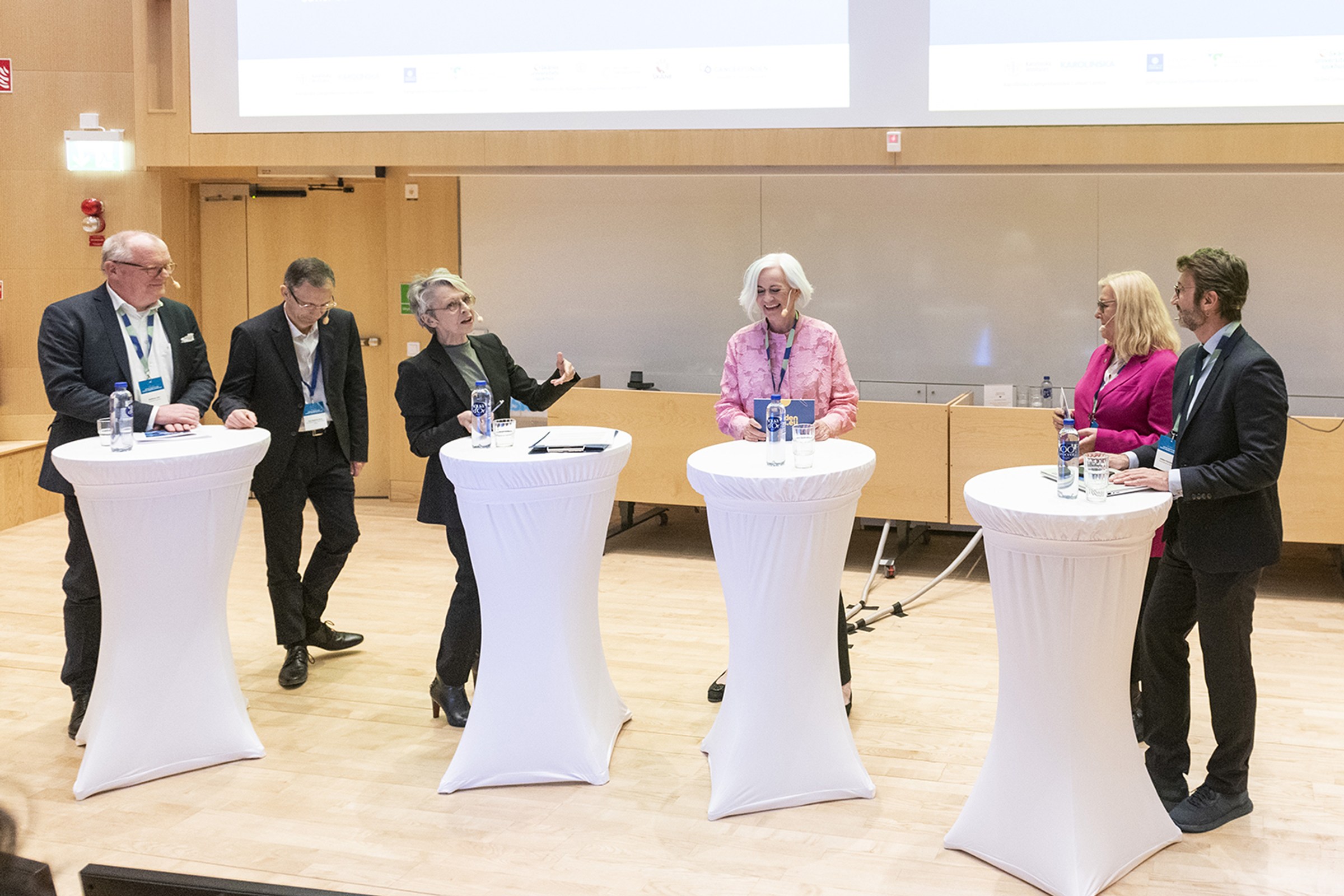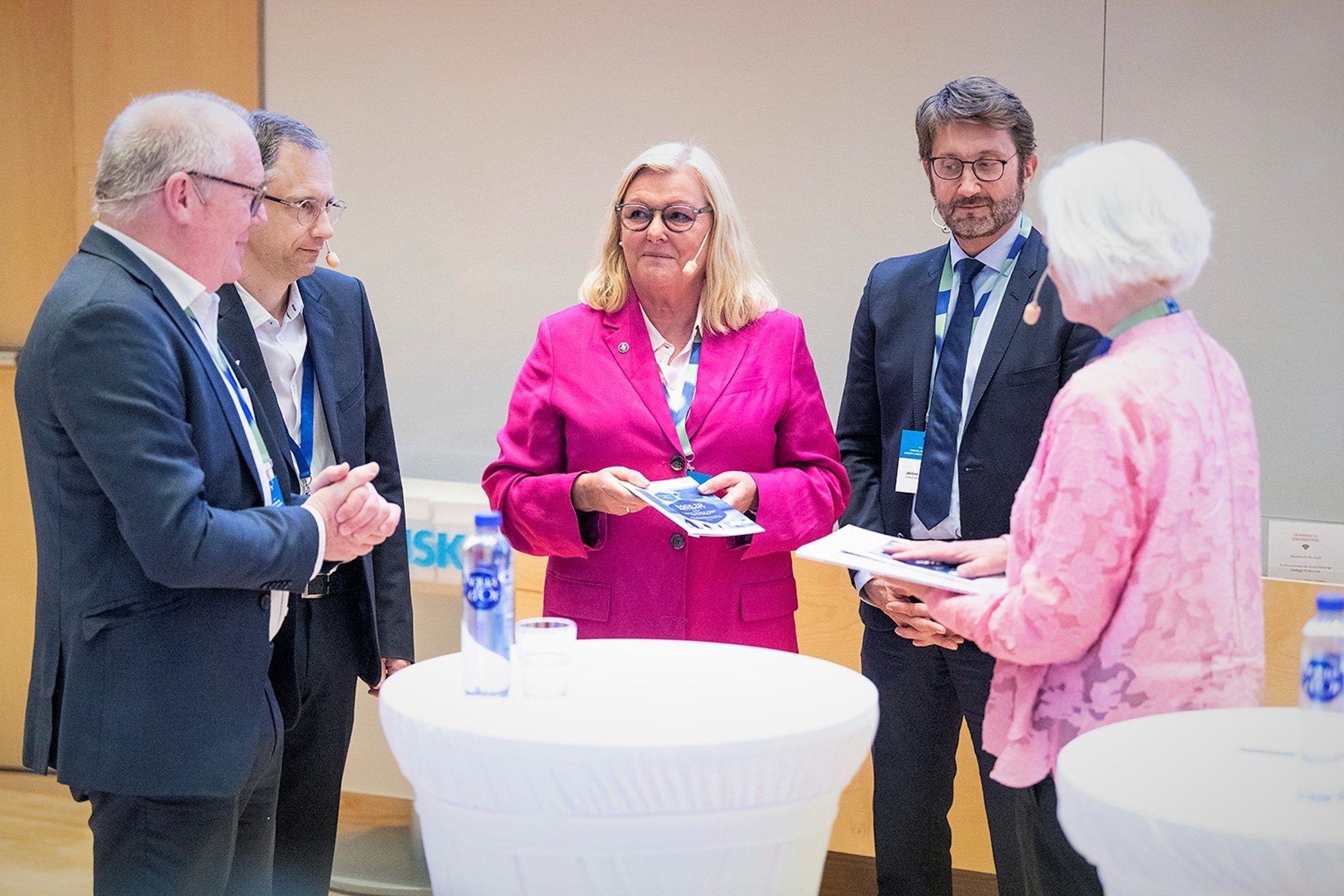How EU cooperation will make Swedish cancer care more equitable

More than 200 researchers, politicians, patient representatives and officials from EU Member States attended the conference "Cancer, equality and EU's Beating Cancer Plan" at Karolinska University Hospital, including Minister of Health Acko Ankarberg Johansson, Director General of the National Board of Health and Welfare Olivia Wigzell and Philippe Roux from the European Commission.
The aim of the meeting was to contribute to the implementation of the EU Cancer Plan and to highlight the potential of EU cooperation to drive progress in cancer research and improve the quality of cancer care.
Cancer with poor prognosis
During the conference, two research collaborations presented their recommendations in the areas of 'Cancer with a poor prognosis' and 'Living well after cancer diagnosis and treatment - the way back to working life'. The recommendations are the result of collaborations since the French EU Presidency, with researchers from several European Comprehensive Cancer Centers (CCCs).
Matthias Löhr, Professor of Gastroenterology and Hepatology, Karolinska
Institutet, wants to draw attention to cancers with a poor prognosis as an important aspect of equality of care.
— Cancer of the pancreas and lower bile ducts affects relatively few people, yet it is the second most common cause of death due to cancer. This is because the survival rate is less than 10%. Yet there is comparatively little research funding in this area. 'There is a great need to spread knowledge to shorten the time to diagnosis and treatment,' he says.

Yvonne Wengström, Professor at the Department of Neurobiology, Care Sciences and Society at Karolinska Institutet and Director of the Cancer theme Care Unit at Karolinska University Hospital, believes that increased collaboration, such as harmonized data collection on sick leave and factors affecting it, will enable comparisons both nationally and at a European level.
— Evaluate. What works, for whom does it work, why does it work? These are the insights of the 120 researchers who started this journey by thinking about 'the way back to work' that we now need to use together. It's not a new area of research, but what we have learned is the importance of collaboration and pointing out the good examples.
Do you feel hopeful?
— Very much so. It is nice to get feedback from the Ministry of Social Affairs that they are working on quality of life issues and confirmation that rehabilitation is neglected and important. That's what this is all about.
⇒Download the whitepaper "Back to activity - a call for action to support cancer survivors in work and employment"
"Cancer, equality and EU's Beating Cancer Plan" was arranged by the Swedish Cancer Society together with the accredited cancer centers Karolinska CCC, Sahlgrenska CCC and Skåne University Hospital.
— "The EU Cancer Plan is ambitious, with strong objectives across the whole range - from prevention and early detection of cancer to treatment and rehabilitation." If we are to achieve these ambitious goals, we must initiate a dialog on how to do this in practice and begin to enable a mutual exchange of knowledge between member states," says Ulrika Årehed Kågström, Secretary General of the Swedish Cancer Society.